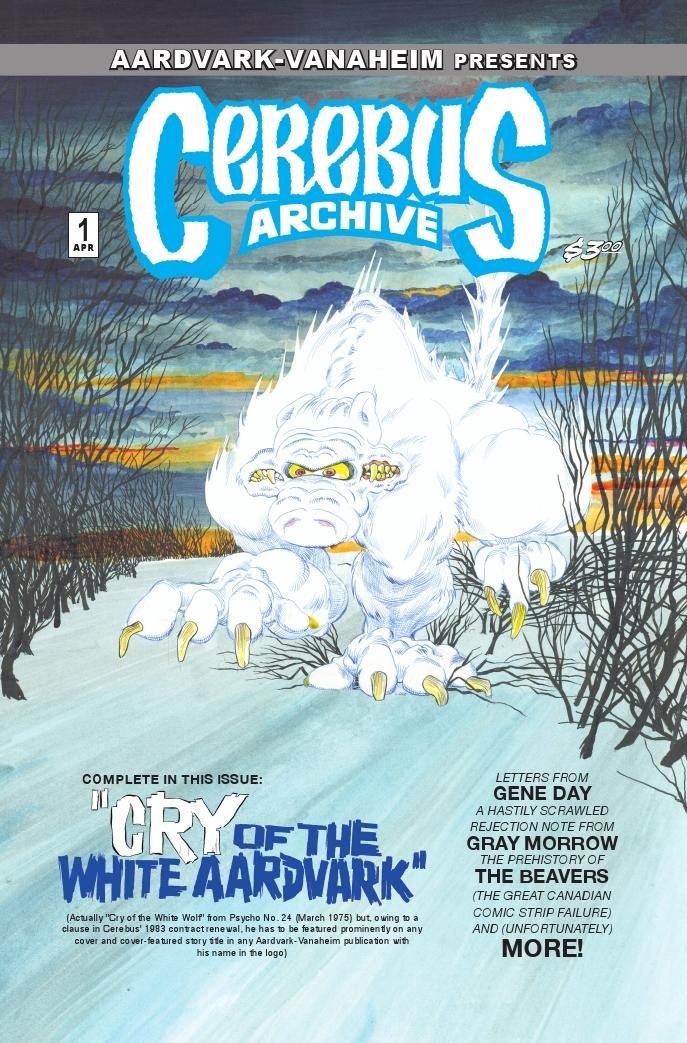You see that two-and-a-half star rating I've given this comic? Yeah, ignore it, because it's totally irrelevant. I gave it two-and-a-half stars, because that's the midpoint on this rating system and I'm not sure there's a way to properly gauge "Cerebus Archive" #1 under that system. If this is your sort of book, you'll enjoy it; if you have no interest in Dave Sim collecting together bits and pieces of art, letters, and other relics from his early days in comics, you won't enjoy it. The concept of 'quality' doesn't really enter into it too much.
Actually, that's only partly true since a project like this could be dreadfully dull in execution, even to those of us interested in the content. Thankfully, Sim handles the entire affair with two goals in mind: to provide as much context and information as possible, and to make fun of his amateur efforts as much as possible. Those goals combine well and make "Cerebus Archive" a quick, entertaining, and informative read.
Sim's look into his past begins in 1972 with "Now & Then Times" #1, a magazine/newsletter published by Now & Then Books where Sim drew a beaver representing Canada to the United States' Uncle Sam. This beaver drawing led to more, culminating in a booklet called "How's Your Beaver," which features various beavers from different parts of Canada. Yeah, it's pretty bad, but I know a got a chuckle out of the Windsor beaver's shirt, which reads "Detroit sends us their leftover crime." Sim apparently planned a beaver comic strip and reprints the two strips he drew and he was quite correct in then placing the strip "WAY on the mental back burner."
Reprinted in full is a short comic story written by Sim and drawn by Stan Connerty from "Pyscho" #24, published in the winter of 1975. It's a story about a hunter that kills his prey by outsmarting them and is, ever-so-ironically, outsmarted by a wolf in turn. It's not the best thing you'll read this week, but is another interesting artifact in Sim's early career.
The second half of this issue is devoted mostly to letters from artist and publisher Gene Day as he and Sim exchanged correspondence, encouraging one another. Sim's annotations are very helpful here, but the material is a little dry.
People looking for some insight into "Cerebus" will be left wanting, but, otherwise, "Cerebus Archive" is a solid beginning to Sim's career in comics, showcasing some of his earliest work. With "glamourpuss," Sim seems very interested in the history of comics, both his own -- as a result, some real insight into independent Canadian comics in the '70s -- and others, and, for those with a similar interest, this is just what you've been waiting for.

